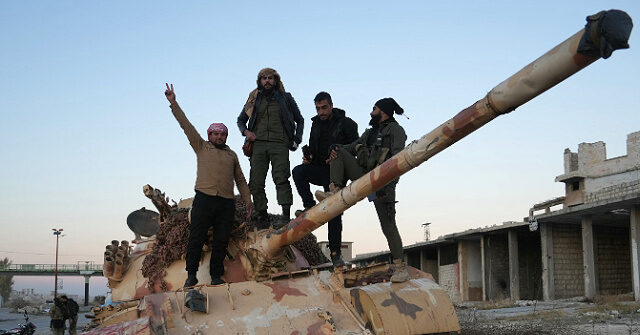The current geopolitical landscape in Syria is marked by a complex shift in power dynamics, as Western nations cautiously engage with the newly established Islamist-led coalition, particularly Hayat Tahrir al-Sham (HTS). Historically, HTS has roots as an offshoot of al-Qaeda, with leader Abu Mohammad al-Jolani historically linked to extremist activities. Yet, in an attempt to reshape his image and that of HTS, al-Jolani has publicly denounced his past and expressed intentions to foster a more moderate, inclusive Islamist governance in Syria. He is reportedly working under his birth name, Ahmed al-Sharaa, advocating for legal unification under a national defense ministry that promises to ensure social justice and stability. Despite this rebranding, HTS and its leaders remain on terrorism watchlists in several Western countries, which complicates international relations, yet European nations like France have begun to reconnect diplomatically with Damascus, illustrating the tension between past affiliations and present policies.
Amid these developments, longstanding humanitarian crises in Syria, exacerbated by the civil war and previous support for Assad’s regime by Iran and Russia, have prompted a reevaluation of Western stances. The recent rapid territorial conquests by HTS in Damascus have triggered responses from various global players, with Turkey and Qatar reestablishing diplomatic channels alongside the U.S. and U.K. This renewed engagement signifies a collective hope that HTS could facilitate a potential end to ongoing violence against religious minorities and contribute to a more stable and unified Syria. Notably, Italian Prime Minister Giorgia Meloni has exhibited willingness to communicate with the insurgent government under the condition that it honors the rights of all religious groups, highlighting a cautious optimism amongst Western leaders.
To rebuild relations and ease humanitarian conditions, the European Union is considering lifting sanctions against the Assad regime while asserting that improvements must be made by the HTS-led government. Ursula von der Leyen, President of the European Commission, described potential discussions surrounding sanctions relief as dependent upon tangible progress towards peace and justice in the country. This underscores a broader recognition among Western powers of the complexities at play in the Syrian conflict, where longstanding animosities need to be put aside for the sake of establishing stability and security for the Syrian people.
The precarious nature of the situation persists as worries emerge about potential fragmentation in Syria, particularly concerning Turkey’s ongoing military aspirations within the region. With the U.S. observing heightened military movement by Turkish forces near the Syrian border, there are increasing fears of a new invasion aimed at Kurdish forces in the area. These tensions are reflective of Turkey’s historical influence and interest in shaping the regional balance of power, a dynamic that poses risks not only for Kurdish populations but for the overall stability that the newly formed government seeks to establish. Kurdish officials have voiced their concerns to U.S. representatives, pleading against actions that could lead to further civilian suffering and destabilization.
Within this context, Western nations are faced with a delicate balancing act; they must navigate renewed contact with the insurgent government while simultaneously ensuring that HTS adheres to its promises of moderation amidst ongoing skepticism regarding its intentions. Diplomatic representatives are returning to Syria with caution, keenly aware that legitimization may be tied to the conduct of the new administration. Traditional foreign policy tools—diplomacy, sanctions, and humanitarian aid—are poised for possible recalibration. The dilemma remains: can Western powers successfully work with HTS while averting broader risks that its governance could entail, such as potential hostility towards ethnic and religious minorities, or even a fragmentation of authority in Syria?
In summary, the evolving political landscape in Syria presents both challenges and opportunities for Western powers, which are seeking to reshape diplomatic relations with the new leadership while advancing humanitarian objectives and ensuring regional stability. With HTS asserting a narrative of reform and inclusivity, only time will tell if these declarations translate into genuine policies and actions. The volatility of the region, influenced by Turkey’s military posture and the historic entrenchment of various factions, means that the path towards a cohesive and peaceful Syria remains fraught with uncertainty, requiring vigilance from both local and international stakeholders committed to a sustainable resolution of the crisis. The strategy moving forward will necessitate a nuanced approach, where dialogue with Syria’s new leaders is undertaken amidst a backdrop of skepticism, strategic interest, and humanitarian concern.

